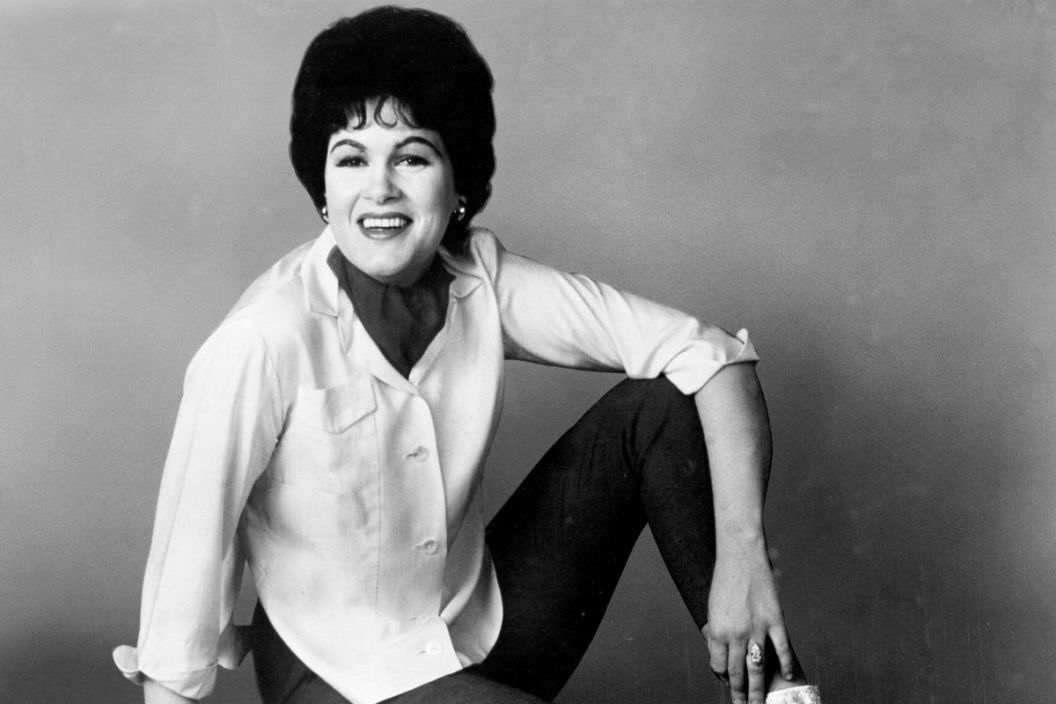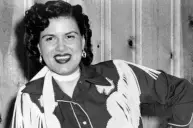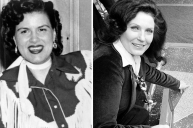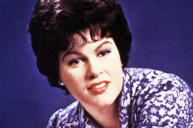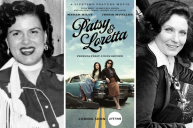When 4 Star Records label head Bill McCall first heard "Walkin' After Midnight," the song that jump-started the career of country legend Patsy Cline, he knew he had a hit on his hands. There was just one problem: Cline didn't want to record it.
By 1956, Cline's career was foundering. She had yet to record a single hit song, and her contract with 4 Star was soon set to expire. McCall enlisted the help of songwriter Don Hecht, who immediately sensed that Cline's voice was ill-suited to the honky-tonk material she had been recording. Hecht dug into his archives and found "Walkin' After Midnight," which he and songwriter Alan Block had written years earlier with jazz singer Kay Starr in mind. Starr never cut the song, which meant it was free for the taking.
Delighted with Hecht's choice, McCall took the song to the famously strong-willed Cline, who hated it. Despite the qualities that Hecht heard in her voice, Cline had no interest in becoming a pop singer. The two men were insistent, however, and Cline offered them a deal: she would cut "Walkin' After Midnight" only if the label allowed her to also record "A Poor Man's Roses (Or a Rich Man's Gold)," the song that she preferred.
Cline got her way, of course, and recorded both songs in a session helmed by producer Paul Cohen with help from Owen Bradley. According to Bradley, who would later produce nearly all of her defining hits, Cline was unsatisfied with her vocal performance on the song. Nonetheless, when Cline appeared on the CBS hit variety show Arthur Godfrey's Talent Scouts the next January — a major opportunity for unproven talent — the show's producer, Janette Davis, insisted that she sing "Walkin' After Midnight." Davis also told Cline to swap out her fringed cowgirl outfit for a cocktail dress, sensing that the latter would better suit the song's bluesy pop stylings.
Cline wowed Godfrey's audience, easily winning the night's top prize, and 4 Star rushed out a single version of "Walkin' After Midnight" to meet the obvious demand. (Fittingly, "A Poor Man's Roses" was used as the B-side.) The song shot up the Billboard charts, becoming a No. 2 country hit and No. 12 pop hit and finally giving Cline a taste of the success she so desperately wanted. The song was a game-changer, both for Cline and for country music itself, since never before had a female singer so successfully crossed over onto the pop charts.
As was typical during her time at the label, however, 4 Star failed to capitalize on the success of Walkin' After Midnight." One major problem was that Cline's contract forbade her from recording songs that did not come from 4 Star's own publishing arm, which meant that she cut a lot of sub-par material. It wasn't until 1961, after Cline had joined Bradley over at Decca, that she finally replicated the song's success. Each of her first three singles with Decca — "I Fall to Pieces," "Crazy" and "She's Got You" — were major country and pop hits, proving that Hecht was correct in his assertion that Cline's voice was better suited to a smoother, less twangy sound.
By the time Cline tragically died in a plane crash in 1963, she was one of the country music's biggest and most influential stars. Her work with Bradley became synonymous with the "Nashville Sound," the slick, pop-inspired style that introduced country to a whole new audience in the late 50s and early 60s. Perhaps more importantly, she opened the door for generations of women who came after her, shattering the ceiling of what many thought a female country artist could achieve with her recordings. The crossover success of later stars as varied as Dolly Parton, Shania Twain and Taylor Swift owe a lot to "Walkin' After Midnight," the "little ole pop song" that Cline was initially so reluctant to record.
"Walkin' After Midnight" Lyrics
I go out walkin' after midnight
Out in the moonlight, just like we used to do
I'm always walkin' after midnight
Searchin' for you
I walk for miles along the highway
Well, that's just my way of sayin' I love you
I'm always walkin' after midnight
Searchin' for you
I stop to see a weepin' willow
Cryin' on his pillow
Maybe he's cryin' for me
And as the skies turn gloomy
Night winds whisper to me
I'm lonesome as I can be
I go out walkin' after midnight
Out in the starlight, just hoping you may be
Somewhere a-walkin' after midnight
Searchin' for me
I stop to see a weepin' willow
Cryin' on his pillow
Maybe he's cryin' for me
And as the skies turn gloomy
Night winds whisper to me
I'm lonesome as I can be
I go out walkin' after midnight
Out in the starlight, just hoping you may be
Somewhere a-walkin' after midnight
Searchin' for me
